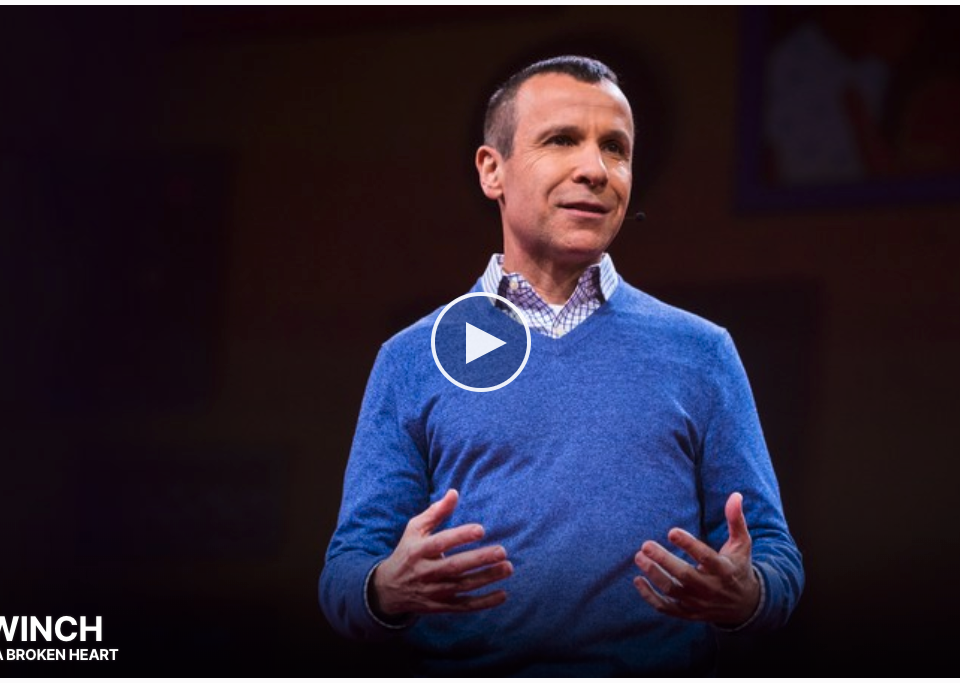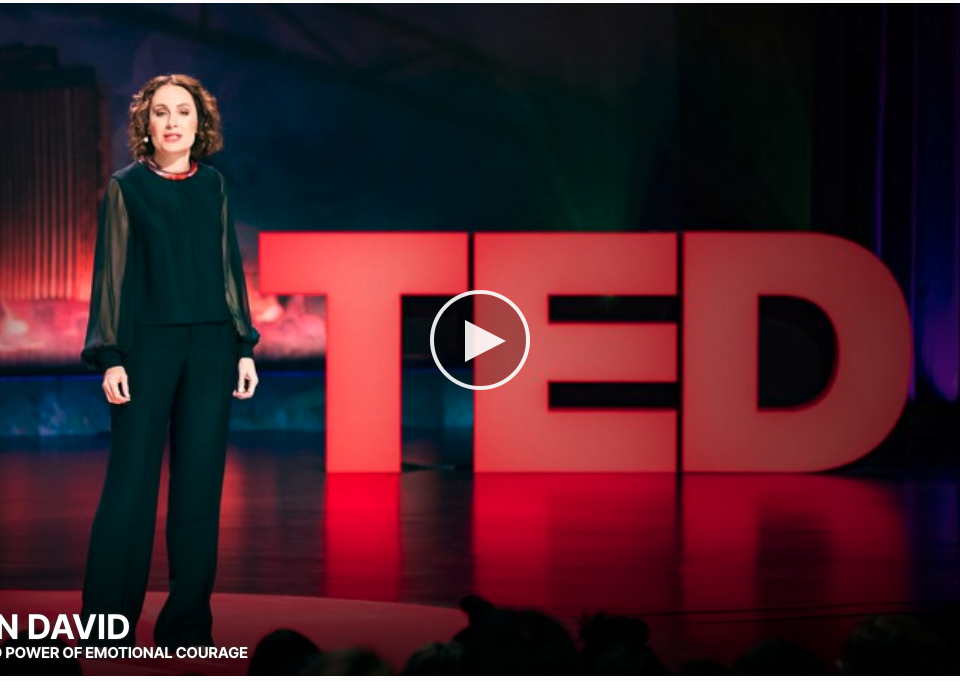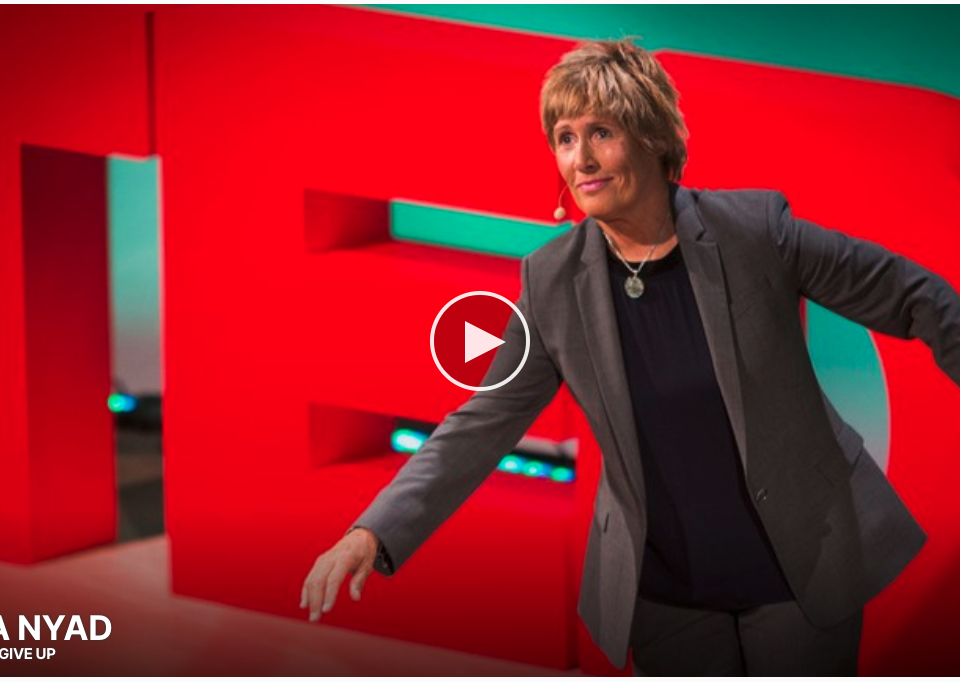Expressões Comuns em português e seus correspondentes em inglês – Common Expressions in portuguese
14 de novembro de 2018
The “Friendliest” Countries in the World
19 de novembro de 2018On November 5th, 1990, a man named El-Sayyid Nosair walked into a hotel in Manhattan and assassinated Rabbi Meir Kahane, the leader of the Jewish Defense League. Nosair was initially found not guilty of the murder, but while serving time on lesser charges, he and other men began planning attacks on a dozen New York City landmarks, including tunnels, synagogues and the United Nations headquarters. Thankfully, those plans were foiled by an FBI informant. Sadly, the 1993 bombing of the World Trade Center was not. Nosair would eventually be convicted for his involvement in the plot. El-Sayyid Nosair is my father.
I was born in Pittsburgh, Pennsylvania in 1983 to him, an Egyptian engineer, and a loving American mother and grade school teacher, who together tried their best to create a happy childhood for me. It wasn’t until I was seven years old that our family dynamic started to change. My father exposed me to a side of Islam that few people, including the majority of Muslims, get to see. It’s been my experience that when people take the time to interact with one another, it doesn’t take long to realize that for the most part, we all want the same things out of life. However, in every religion, in every population, you’ll find a small percentage of people who hold so fervently to their beliefs that they feel they must use any means necessary to make others live as they do.
A few months prior to his arrest, he sat me down and explained that for the past few weekends, he and some friends had been going to a shooting range on Long Island for target practice. He told me I’d be going with him the next morning. We arrived at Calverton Shooting Range, which unbeknownst to our group was being watched by the FBI. When it was my turn to shoot, my father helped me hold the rifle to my shoulder and explained how to aim at the target about 30 yards off. That day, the last bullet I shot hit the small orange light that sat on top of the target and to everyone’s surprise, especially mine, the entire target burst into flames. My uncle turned to the other men, and in Arabic said, “Ibn abuh.” Like father, like son. They all seemed to get a really big laugh out of that comment, but it wasn’t until a few years later that I fully understood what they thought was so funny. They thought they saw in me the same destruction my father was capable of. Those men would eventually be convicted of placing a van filled with 1,500 pounds of explosives into the sub-level parking lot of the World Trade Center’s North Tower, causing an explosion that killed six people and injured over 1,000 others. These were the men I looked up to. These were the men I called ammu, which means uncle.
By the time I turned 19, I had already moved 20 times in my life, and that instability during my childhood didn’t really provide an opportunity to make many friends. Each time I would begin to feel comfortable around someone, it was time to pack up and move to the next town. Being the perpetual new face in class, I was frequently the target of bullies. I kept my identity a secret from my classmates to avoid being targeted, but as it turns out, being the quiet, chubby new kid in class was more than enough ammunition. So for the most part, I spent my time at home reading books and watching TV or playing video games. For those reasons, my social skills were lacking, to say the least, and growing up in a bigoted household, I wasn’t prepared for the real world. I’d been raised to judge people based on arbitrary measurements, like a person’s race or religion.
So what opened my eyes? One of my first experiences that challenged this way of thinking was during the 2000 presidential elections. Through a college prep program, I was able to take part in the National Youth Convention in Philadelphia. My particular group’s focus was on youth violence, and having been the victim of bullying for most of my life, this was a subject in which I felt particularly passionate. The members of our group came from many different walks of life. One day toward the end of the convention, I found out that one of the kids I had befriended was Jewish. Now, it had taken several days for this detail to come to light, and I realised that there was no natural animosity between the two of us. I had never had a Jewish friend before, and frankly I felt a sense of pride in having been able to overcome a barrier that for most of my life I had been led to believe was insurmountable.Another major turning point came when I found a summer job at Busch Gardens, an amusement park. There, I was exposed to people from all sorts of faiths and cultures, and that experience proved to be fundamental to the development of my character. Most of my life, I’d been taught that homosexuality was a sin, and by extension, that all gay people were a negative influence. As chance would have it, I had the opportunity to work with some of the gay performers at a show there, and soon found that many were the kindest, least judgmental people I had ever met. Being bullied as a kid created a sense of empathy in me toward the suffering of others, and it comes very unnaturally to meto treat people who are kind in any other way than how I would want to be treated. Because of that feeling, I was able to contrast the stereotypes I’d been taught as a child with real life experience and interaction. I don’t know what it’s like to be gay, but I’m well acquainted with being judged for something that’s beyond my control.
Then there was “The Daily Show.” On a nightly basis, Jon Stewart forced me to be intellectually honest with myself about my own bigotry and helped me to realize that a person’s race, religion or sexual orientation had nothing to do with the quality of one’s character. He was in many ways a father figure to me when I was in desperate need of one. Inspiration can often come from an unexpected place, and the fact that a Jewish comedian had done more to positively influence my worldview than my own extremist father is not lost on me.
One day, I had a conversation with my mother about how my worldview was starting to change, and she said something to me that I will hold dear to my heart for as long as I live. She looked at me with the weary eyes of someone who had experienced enough dogmatism to last a lifetime, and said, “I’m tired of hating people.” In that instant, I realised how much negative energy it takes to hold that hatred inside of you.
Zak Ebrahim is not my real name. I changed it when my family decided to end our connection with my father and start a new life. So why would I out myself and potentially put myself in danger? Well, that’s simple. I do it in the hopes that perhaps someone someday who is compelled to use violence may hear my story and realize that there is a better way, that although I had been subjected to this violent, intolerant ideology, that I did not become fanaticised. Instead, I choose to use my experience to fight back against terrorism, against the bigotry. I do it for the victims of terrorism and their loved ones, for the terrible pain and loss that terrorism has forced upon their lives. For the victims of terrorism, I will speak out against these senseless acts and condemn my father’s actions. And with that simple fact, I stand here as proof that violence isn’t inherent in one’s religion or race, and the son does not have to follow the ways of his father. I am not my father.
Thank you, everybody. Thank you all.
Thanks a lot.
Texto em Português:
No dia 5 de novembro de 1990, um homem chamado El-Sayyid Nosair entrou em um hotel em Manhattan e assassinou o rabino Meir Kahane, o líder da Liga de Defesa Judaica. Nosair foi inicialmente julgado inocente do assassinato, mas enquanto cumpria pena por acusações menores,ele e outro homem começaram a planejar ataques a dezenas de pontos da cidade de Nova Iorque, incluindo túneis, sinagogas e a sede das Nações Unidas. Felizmente, esses planos foram delatados por um informante do FBI. Infelizmente, o ataque a bomba ao World Trade Center, em 1993, não foi. Nosair seria finalmente condenado por seu envolvimento na ação. El-Sayyid Nosair era meu pai.
Eu nasci em Pittsburgh, Pennsylvania, em 1983, filho dele, um engenheiro egípcio, e de uma carinhosa mãe americana e professora primária, que juntos fizeram seu melhor para criar uma infância feliz para mim. Foi só aos meus sete anos de idade que a dinâmica de nossa família começou a mudar. Meu pai me mostrou um lado do islã que poucas pessoas, incluindo a maioria dos muçulmanos, têm a chance de ver. Aprendi que quando as pessoas param para interagir umas com as outras, não demora muito para se perceber que, em geral, todos queremos as mesmas coisas na vida. Entretanto, em cada religião, em cada população, há uma pequena porcentagem de pessoas que se atêm às suas crenças tão fervorosamente que sentem que devem usar qualquer meio necessário para fazer os outros viverem como eles.
Alguns meses antes de sua prisão, ele sentou-se comigo e explicou que, nos últimos fins de semana, ele e alguns amigos estavam frequentando um campo de tiro em Long Island para praticar a mira. Ele disse que me levaria com ele na manhã seguinte. Nós chegamos ao Campo de Tiro Calverton, que, sem nosso conhecimento, estava sendo vigiado pelo FBI. Na minha vez de atirar, meu pai me ajudou a segurar o rifle no meu ombro e me explicou como mirar no alvo a cerca de 27 metros de distância.Naquele dia, a última bala que eu atirei atingiu a pequena luz laranja que ficava sobre o alvo e, para a surpresa de todos, especialmente a minha, o alvo inteiro pegou fogo. Meu tio virou-se aos outros homens, e disse em árabe, “Ibn abuh”. Tal pai, tal filho. Todos pareceram se divertir bastante com aquele comentário, mas somente alguns anos depois eu entendi exatamente o que haviam achado tão engraçado. Eles acharam ter visto em mim a mesma destruição de que meu pai era capaz.Aqueles homens um dia seriam condenados de colocar uma van carregada com 680 kg de explosivos no estacionamento subterrâneo da Torre Norte do World Trade Center, causando uma explosão que matou seis pessoas e feriu mais de mil outras. Esses eram os homens que eu admirava. Esses eram os homens que eu chamava de ammu, que significa “tio”.
Quando eu completei 19 anos, já tinha me mudado 20 vezes, e aquela instabilidade em minha infância não me ofereceu muita oportunidade de fazer muitos amigos. Toda vez que eu começava a me sentir confortável com alguém, já era hora de empacotar tudo e ir para a próxima cidade. Sendo sempre o novo garoto da turma, eu era sempre o alvo dos valentões. Eu escondia minha identidade dos meus colegas para evitar ser alvo, mas, pelo jeito, ser o garoto novo, quieto e gordinho na turma era munição mais do que suficiente. Então, na maior parte do tempo, eu ficava em casa, lendo livros e assistindo a TV, ou jogando videogames. Por isso, eu não tinha muita habilidade social, para dizer o mínimo. Crescendo num lar preconceituoso, eu não fui preparado para o mundo real. Eu fui criado para julgar as pessoas com base em medidas arbitrárias, como a raça ou a religião delas.
E o que abriu meus olhos? Uma das minhas primeiras experiências que desafiaram esse modo de pensamento foi durante as eleições presidenciais de 2000. Por meio de um programa preparatório para a universidade, pude participar da Convenção Nacional da Juventude na Filadélfia. O foco do meu grupo em particular era violência na juventude, e por ter sofrido bullying por quase toda minha vida, esse era um assunto pelo qual eu particularmente me interessava. Os membros do meu grupo vinham de diferentes classes sociais. Um dia, chegando ao final da convenção, descobri que uma das crianças com quem eu tinha feito amizade era judia. Bem, tinha demorado vários dias para que eu descobrisse esse detalhe, e eu descobri que não havia uma hostilidade natural entre nós dois.Eu nunca havia tido um amigo judeu antes e, francamente, eu me senti muito orgulhoso de ter conseguido superar a barreira que, por quase toda a minha vida, fizeram-me acreditar ser insuperável. Outro momento decisivo chegou, quando encontrei um emprego de verão em Busch Gardens, um parque de diversões. Lá, eu fui exposto a pessoas de todos os tipos de crenças e culturas, e essa experiência provou-se fundamental para o desenvolvimento do meu caráter. Por quase toda minha vida, ensinaram-me que homossexualidade era pecado e que, por extensão, todas as pessoas gays eram influência negativa. Por um golpe do acaso, eu tive a oportunidade de trabalhar com alguns dos artistas gays numa apresentação lá, e logo percebi que muitos eram as pessoas mais gentis e menos críticas que já havia conhecido. Ter sofrido bullying quando criança criou um senso de empatia em mim para com o sofrimento dos outros, e para mim não é muito natural tratar pessoas que são gentis de um jeito diferente de como eu gostaria de ser tratado.Por causa desse sentimento, eu conseguia diferenciar os estereótipos que me ensinaram na infância com experiência de vida real e interação. Não sei como é ser gay, mas sei bem como é ser julgado por algo que está além do meu controle.
E havia o “The Daily Show”. Todas as noites, Jon Stewart me forçava a ser intelectualmente sincero comigo mesmo sobre meu preconceito e me ajudou a perceber que a raça, religião, ou orientação sexual de uma pessoa não tinham nada a ver com a qualidade de seu caráter. Em muitos aspectos, ele era uma figura paterna para mim quando eu precisava de uma, desesperadamente. Inspiração muitas vezes pode vir de um lugar inesperado, e o fato de que um comediante judeu havia feito mais para influenciar positivamente minha visão de mundo do que meu próprio pai extremista não se perdeu em mim.
Um dia, eu tive uma conversa com minha mãe sobre como minha visão de mundo estava mudando, e ela me disse uma coisa que vou levar com carinho no coração enquanto eu viver. Ela me olhou com os olhos cansados de alguém que havia vivenciado dogmatismo suficiente para uma vida inteira, e disse: “Estou cansada de odiar as pessoas.” Naquele instante, eu percebi quanta energia negativa é necessária para manter o ódio dentro de você.
Zak Ebrahim não é meu nome real. Troquei meu nome quando minha família decidiu eliminar a conexão com meu pai e começar uma nova vida. Então, por que eu me exporia e potencialmente ficaria em perigo? Bem, é simples. Eu faço isso na esperança de que talvez, algum dia, alguém que seja forçado a usar violência possa ouvir minha história e perceber que há um caminho melhor, que apesar de ter sido submetido a essa ideologia violenta e intolerante, eu não me tornei um fanático.Em vez disso, escolhi usar minha experiência para revidar ao terrorismo, à intolerância. Eu faço isso pelas vítimas do terrorismo e por seus entes queridos, pela dor e pelas perdas terríveis que o terrorismo impôs em suas vidas. Pelas vítimas do terrorismo, eu vou me manifestar contra esses atos sem sentido e condenar as ações de meu pai. E com esse fato simples, cá estou eu como prova de que a violência não é inerente à religião ou à raça de alguém e de que o filho não tem que seguir o caminho de seu pai. Eu não sou meu pai.
Obrigado. Obrigado a todos.
Muito obrigado.





